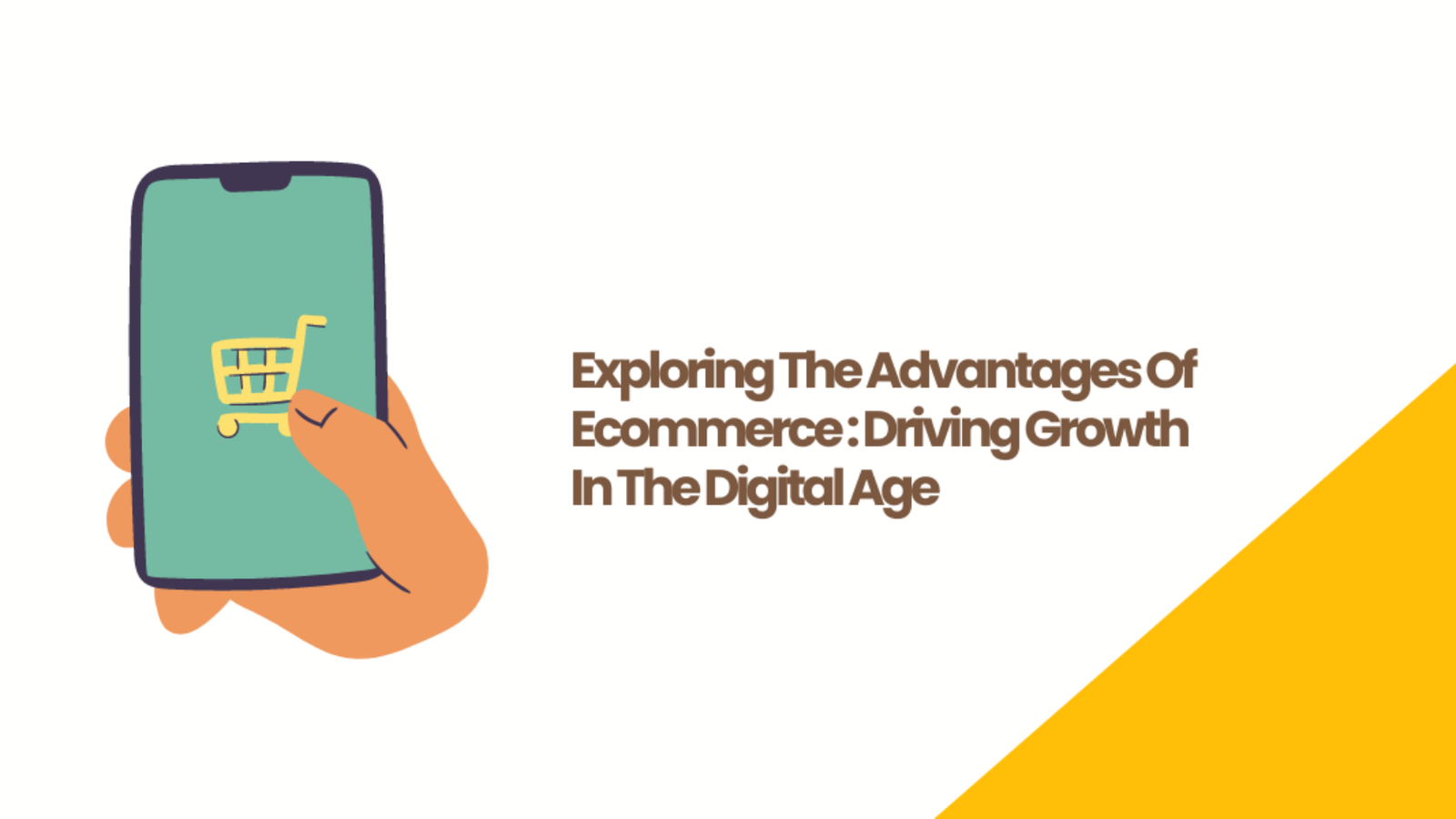In the fast-paced world of digital retail, the landscape has shifted dramatically. Traditional brick-and-mortar stores are no longer the only option for reaching customers. The rise of ecommerce has revolutionised the way businesses operate, offering a plethora of benefits that can drive growth and enhance profitability. In this blog post, we’ll explore the key advantages of ecommerce and how leveraging these benefits can transform your business.
1. Wider Customer Reach
One of the most significant advantages of ecommerce is its ability to connect with a global audience. Unlike traditional stores confined by geographical limitations, ecommerce allows businesses to extend their reach across borders. This global exposure not only broadens the potential customer base but also amplifies brand visibility. With effective digital marketing strategies, businesses can attract and engage a diverse customer base, resulting in increased sales and revenue.
2. 24/7 Availability
Ecommerce platforms operate around the clock, offering customers the flexibility to shop at any time from anywhere. This 24/7 availability is particularly advantageous for businesses catering to different time zones or varied schedules. By being accessible at all times, ecommerce stores can capture more sales opportunities, enhance revenue, and improve customer satisfaction, as shoppers can browse and make purchases at their convenience.
3. Lower Operational Costs
Traditional retail involves considerable expenses, including rent, utilities, staff salaries, and inventory management. In contrast, ecommerce businesses benefit from lower operational costs due to the elimination of a physical storefront. Ecommerce platforms also automate various processes such as order management and customer service, further reducing overheads. These cost savings can be redirected toward other areas of the business, like marketing and product innovation, fueling further growth.
4. Personalised Customer Experience
Ecommerce platforms provide valuable data about customer behaviour, preferences, and purchase history. This data enables businesses to offer personalised shopping experiences, from tailored product recommendations to customised marketing messages. Personalization enhances the shopping experience, increases customer satisfaction, and fosters loyalty. Features like wish lists, personalised emails, and tailored discounts further enhance the customer journey and encourage repeat purchases.
5. Data-Driven Decision Making
Modern ecommerce platforms offer comprehensive data and analytics, empowering businesses to make informed decisions. By analysing customer behaviour, sales trends, and website performance, businesses can refine their strategies and optimise their operations. Data-driven insights help identify high-performing products, address customer pain points, and evaluate marketing campaign effectiveness, leading to strategic decisions that boost sales and customer satisfaction.
6. Improved Customer Insights
Ecommerce platforms provide deep insights into customer preferences and feedback. Understanding what customers want and need allows businesses to refine their products and marketing strategies. Tools for collecting customer reviews and feedback enable businesses to address concerns promptly and improve offerings. This continuous feedback loop helps businesses stay competitive and responsive to customer needs.
7. Enhanced Customer Engagement and Loyalty
Ecommerce platforms offer numerous opportunities for customer engagement and relationship-building. Through social media integration, email marketing, and loyalty programs, businesses can create meaningful interactions with their customers. These engagement touchpoints help build trust and loyalty, encouraging repeat business. Loyalty programs, in particular, reward customers for their repeat purchases, further enhancing retention and lifetime value.
8. Scalability and Flexibility
Ecommerce offers remarkable scalability and flexibility, allowing businesses to grow without the constraints of physical space. As demand increases, businesses can easily scale operations, add new products, and explore new markets. This adaptability is especially valuable for businesses experiencing rapid growth or those looking to diversify their product range. Ecommerce platforms also allow for testing new products and strategies with minimal risk and investment.
9. Efficient Inventory Management
Managing inventory efficiently is crucial for ecommerce success. Many ecommerce platforms come with built-in inventory management tools that provide real-time insights into stock levels. These tools help prevent stockouts and overstock situations, reduce carrying costs, and improve cash flow. Additionally, ecommerce businesses can use just-in-time inventory systems to minimise warehousing needs and associated costs.
10. Access to Diverse Marketing Channels
Ecommerce provides access to a wide array of digital marketing channels, including social media, email marketing, SEO, and PPC advertising. These channels enable businesses to target their audience more effectively than traditional methods. By leveraging a combination of these channels, businesses can drive traffic to their online store and convert visitors into customers. Digital marketing also allows for precise targeting and segmentation, ensuring that efforts are focused on the most relevant audience.
11. Reduced Barriers to Entry
Launching a traditional brick-and-mortar business often requires significant upfront investment. Ecommerce significantly lowers these barriers, making it more accessible for entrepreneurs and small businesses. With minimal investment, businesses can start with dropshipping or third-party fulfilment services. This lower barrier to entry fosters competition and innovation, allowing more businesses to enter the market.
12. Environmental Benefits
Ecommerce also offers environmental advantages by reducing the need for physical storefronts and minimising transportation and packaging. This reduction in environmental impact is increasingly important to modern consumers. Ecommerce platforms often provide digital receipts and invoices, cutting down on paper usage and waste. Adopting sustainable practices can appeal to environmentally conscious consumers and contribute to a greener economy.
Conclusion
The advantages of ecommerce are vast and transformative. From reaching a global audience and operating 24/7 to reducing operational costs and enhancing customer engagement, ecommerce provides numerous benefits that can drive business success. As the digital landscape evolves, businesses that embrace e-commerce are well-positioned to thrive in a competitive market. For those looking to expand their reach and stay ahead of the curve, exploring the advantages of ecommerce is not just an option—it’s a strategic necessity. By leveraging these advantages, businesses can achieve sustainable growth and build a loyal customer base in today’s digital age.

Add a Comment